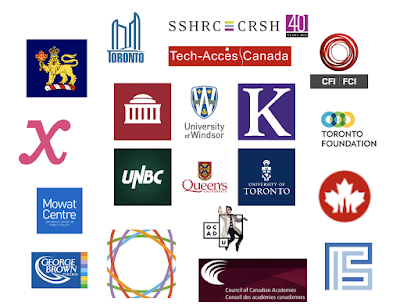Sharing my TESS 2020 opening remarks as we kicked off TESS2020 today. If you missed day 1 you can catch some of the presentations on our social – it was an exemplary day.
Thank you for joining us at The Technology and Education Seminar and Showcase 2020!
We at eCampusOntario are delighted you’ve taken the time to be part of TESS this year. I’d like to extend a special welcome to our colleagues from Kenjgewin Teg, who recently joined eCampusOntario as our 46th member and, significantly, our first member Indigenous Institute.
As Lutfiyya and Daniel have said we have a great lineup – discussions, panel presentations, and breaks with a variety of entertainment. We have benefitted from support and help from many people – not the least of which is our fantastic team who have worked behind the scenes to make this event what it will be. We are also indebted to Jennifer Gordon from Humber College who provided key input and advice on running a virtual conference – thanks Jennifer.
In this virtual conference we are all convening from different places. This is one of the things that makes the online environment special. The land acknowledgement Daniel read is an important way for us to begin our proceedings-- and we can build on today’s acknowledgement. Each of us can acknowledge the traditional territories from which we join the event today. To do this, I’ll ask you to go to the site posted in the chat
https://native-land.ca/territory-acknowledgement/
and find out which traditional territories you are on. Then please share this with everyone through the chat.
I happen to be in east Toronto: the traditional territories of the Haudenosaunee, the Anishinabewaki, the Mississaugas of the Credit First Nation, part of the larger Mississauga nation. I’ve lived in many places in Canada, and was born in Saskatchewan, on Treaty 4 territory, traditional home of the Cree, Blackfoot and Sioux.
It is important to acknowledge our relationship to the land and those that have lived here before us. Doing so is an important reminder of our responsibility to the Truth and Reconciliation Commission Calls To Action.
This social context informs our work. It includes the imperative to join the fight against anti-Black racism and anti-BIPOC racism, and to support Equity, Decolonization, Diversity and Inclusion in everything we do.
Above all, we can seize this moment to rebuild and support an environment that prioritizes inclusion, representation and voice.
Taking time to remember and invoke the land outside is an important way to remind ourselves that our lives are so much more than technology at a time when so much (including this conference) is mediated by screens.
This is a significant time for all of us. We collectively have been navigating unprecedented changes due to COVID 19. We know that the pandemic has disproportionately affected those already experiencing marginalization. And so our theme this year – Humanizing Learning – is an appropriate way to think about the ways in which we can work together to make learning as human as it can be.
Because most of us are now teaching and learning online as our default mode, we are navigating the different tools and approaches we can use to help ensure our online courses are as engaging as our face to face ones.
We have to remember a very important point: Virtual learning is real learning.
Many of you joining us today are leaders in creating innovative, interactive and above all high-quality online learning experiences that result in meaningful learner engagement. We have the ability to ensure not only that our learners can access these quality experiences, but they can do so as part of their lifelong learning journey.
The online learning experiences continue to get better and better, precisely because we convene at conferences like this and share our stories, our successes, and our failures. These events – virtual or otherwise, are important conduits for our own professional development, that in turn have positive effects on our collective ability to model learning as an active way of engaged living.
Our sector – with rest of the world – went through a sudden pivot when the pandemic first hit. You are all to be commended for navigating this sudden turn. The work we have done together over the past five years provided our sector with guidance and leadership on creating quality online learning environments, which greatly benefited this sudden shift to remote learning.
We now turn to the challenge of scale: how do we build on the work we have done, to continue to provide high quality learning environments that generate enthusiasm, engagement, and a sense of connection in our learners. We can do this by embracing the principles of human centred design that remind us to put the needs of the learner and the social contexts in which we all live at the centre of our curriculum design.
So welcome to TESS 2020 – I am certain you will enjoy the program!



